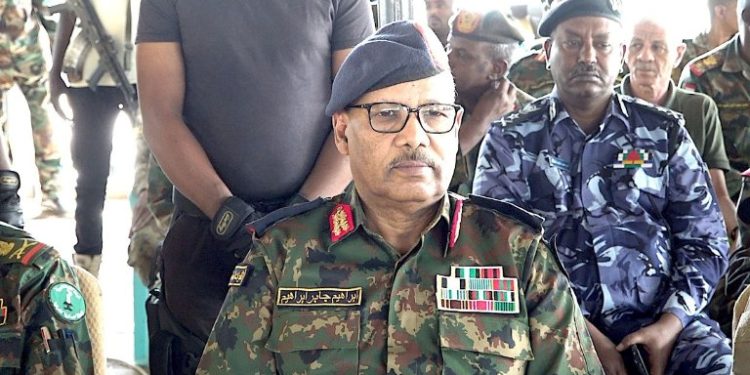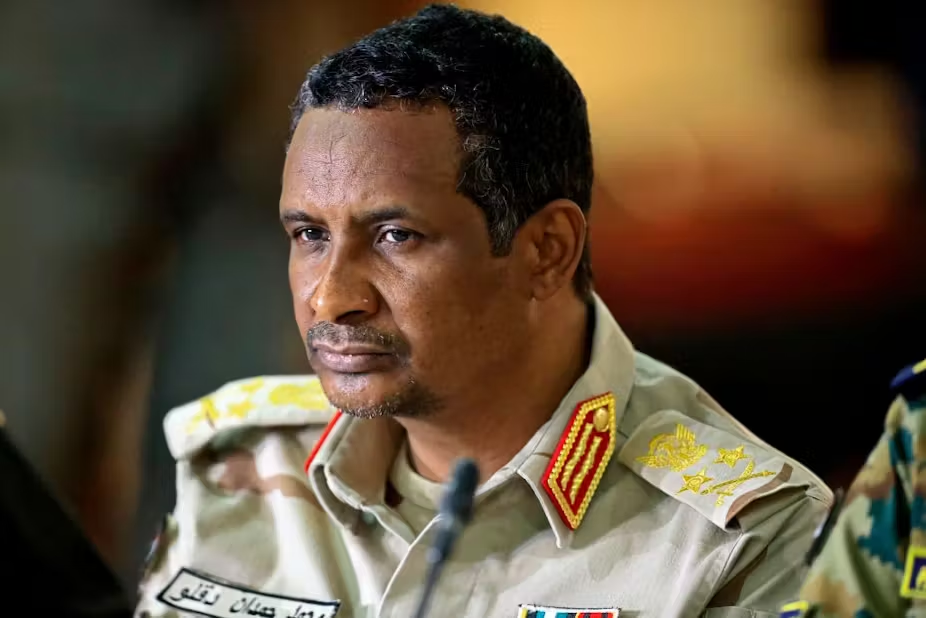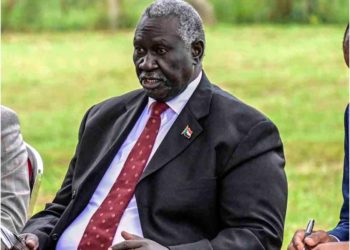By SUDAN TRIBUNE
March 25, 2024 (GADAREF) – Lieutenant General Ibrahim Jaber, a member of Sudan’s Sovereign Council and the military’s second-in-command, declared the armed forces’ refusal to participate in any power-sharing agreement with civilian political groups.
Despite regional and international efforts to resolve the year-long conflict and return to a civilian-led transition, Jaber outlined the military’s stance: they firmly refuse to share power again with political parties that stand accused of aligning themselves with the rebellious paramilitary forces.
In a speech to soldiers and an officer of the 2nd Infantry Division in Gedaref State on Monday, Ibrahim Jaber declared: “The armed forces are no longer party to any agreements with politicians, effective immediately. Secondly, the armed forces stand as the sole national army of Sudan, and we will accept no alternatives.”
“Our message to politicians is clear: a non-political transitional period will be established with a government of technocrats. This government will manage the affairs of the Sudanese people and prepare for elections in which the people will choose their leadership.”
This announcement follows similar statements from other military leaders. On March 16th, Assistant Commander Yasir Al-Atta expressed the military’s refusal to cede power to civilians before elections. He also proposed local and state elections for popular resistance committees to choose the Prime Minister and state governors.
However, on March 24th, Vice President Malik Aqar presented a contrasting view. He asserted that a civilian government would be formed to rebuild the country once the army defeated the Rapid Support Forces (RSF). “Teenage politicians and activists” who, in his view, do not represent the people would not be part of this government.
Following the fall of the Bashir regime in April 2019, Sudanese Army Commander-in-Chief Abdel Fattah al-Burhan previously expressed his desire to emulate the approach of Field Marshal Abdel-Rahman Siwar al-Dahab. Siwar al-Dahab assumed power after the fall of Numeiri in April 1985. He established a transitional military council and appointed a technocratic government to organise national elections. He handed over power to an elected government in May 1986.
(ST)







Discussion about this post